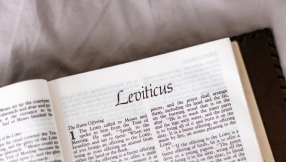
Researchers have identified a link between self-harming among young people and the risk of committing violent crime.
Researchers at King's College London and Duke University's Center for Child and Family Policy found that young people who self-harmed were far more likely to commit violent crime than those who did not.
The researchers also compared those who only self-harmed with those who self-harmed and committed violent crime, called 'dual harmers'.
The study, published in The American Journal of Psychiatry, looked at the development of 2,232 twins born in 1994 and 1995 over the first two decades of their lives.
While the prevalence of committing violent crime was 16.9 per cent among those who did not self-harm, this more than doubled to 35.4 per cent among those who self-harmed.
Males were particularly susceptible, with 56.1 per cent of self-harmers committing violent crime compared to only 25.3 per cent of those who did not.
Girls who self-harmed were nearly three times as likely to commit violent crime as those who did not - 23.9 per cent compared to 8.8 per cent.
'We know that some individuals who self-harm also inflict harm on others,' said Leah Richmond-Rakerd, lead author of the study.
'What has not been clear is whether there are early-life characteristics or experiences that increase the risk of violent offending among individuals who self-harm.
'Identifying these risk factors could guide interventions that prevent and reduce interpersonal violence.'
The researchers also found that 'dual harmers' were more likely to have had a history of childhood maltreatment than those who only self harmed, as well as lower levels of self control.
They were also more likely to have experienced victimisation in adolescence, and have higher rates of psychotic symptoms and substance dependence.
'Our study suggests that dual-harming adolescents have experienced self-control difficulties and been victims of violence from a young age,' said Richmond-Rakerd.
'A treatment-oriented rather than punishment-oriented approach is indicated to meet these individuals' needs.'













